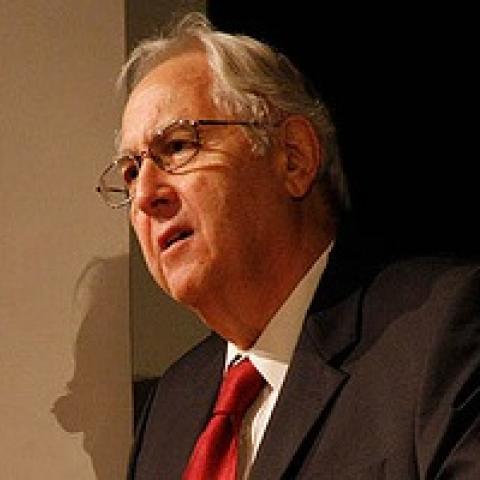On April Fool's Day, New York University will launch its latest attempt to whitewash the history of communism in American life.
The occasion is a six-hour conference on the topic of "Academic Freedom in the 1960s," sponsored by the university's Federick Ewen Academic Freedom Center.
The conference, according to the center's statements, will "examine the key fronts in the present battles over higher education, and their historical parallels in previous eras," and "examine successive, well-funded ideological assaults on academic freedom by outside pressure groups aimed at undermining the legitimacy of scholarly study during the 1960s."
But the bland academic language can't mask the agenda, which is apparent with a look at the speakers. All come from various precincts of the American left; not one has a different perspective on the 1960s.
Historian Ellen Schrecker, author of many books about McCarthyism and the academy, will deliver the keynote. She is famous for arguing that, while many accused of being Soviet agents in the 1950s turned out to be guilty, they should be excused for their crimes. Such agents "did not subscribe to traditional forms of patriotism" and, because they were spying for a cause in which they believed, they weren't "betraying their country," she has written.
Another major speaker is a Rutgers-Newark professor of English and American studies, H. Bruce Franklin, author of several books about America and Vietnam and a proud anti-war activist. Franklin wrote an introductory essay to a book he edited, "The Essential Stalin" (1972), in which he argues: "I used to think of Joseph Stalin as a tyrant and butcher who jailed and killed millions . . . But, to about a billion people today, Stalin is the opposite of what we in the capitalist world have been programmed to believe."
To these people, Franklin writes approvingly, Stalin is "one of the great heroes of modern history, a man who personally helped win" the "liberation" of the people of China, Vietnam, North Korea and Albania.
Perhaps Franklin will elaborate on how Stalin fought for civil liberties in Russia, by orchestrating the killing of millions of "class enemies" and by urging his American followers to work for revolution at home and to spy for the Soviet Union?
The author's biography for his Stalin volume proudly describes Franklin as "a revolutionary who is also a professor of English."
Need one say more?
The "academic freedom" conference is only the latest salvo in NYU's apparent attempt to establish itself as the preeminent center for leftist reappraisals of the recent past.
A few years ago, another NYU creation, the Tamiment Library's Center for the United States and the Cold War, held a major conference dedicated to proving the innocence of American Soviet spy Alger Hiss. The center recently held a forum in which speakers all proclaimed the heroism and innocence of executed atom spies Ethel and Julius Rosenberg, who were portrayed as yet another set of victims of America's Cold War repression. The university also runs a Web site dedicated to proving Hiss' innocence, "The Alger Hiss Story."
All those appearing at NYU forums have the right to their points of view. But a great university should offer students and the public a chance to hear contending points of view on controversial issues, rather than holding partisan events passed off as scholarly conclaves.
Does NYU really want to vindicate the charges made by conservative critic David Horowitz, who argues that radical faculty have "turned America's classrooms into indoctrination centers for their political cause"?
NYU once had on its faculty the late Sidney Hook, then the preeminent academic fighter against totalitarianism of both the right and the left. Hook fought relentlessly throughout the 1950s and '60s against one-sided forums in which only the pro-Soviet left had speakers and which always excluded him. Were he alive, Hook would no doubt be dismayed that his university now partakes of the same kind of practices he dedicated his life to fighting.
Is NYU pleased with itself for sponsoring these closed-door séances of the Old Left?














